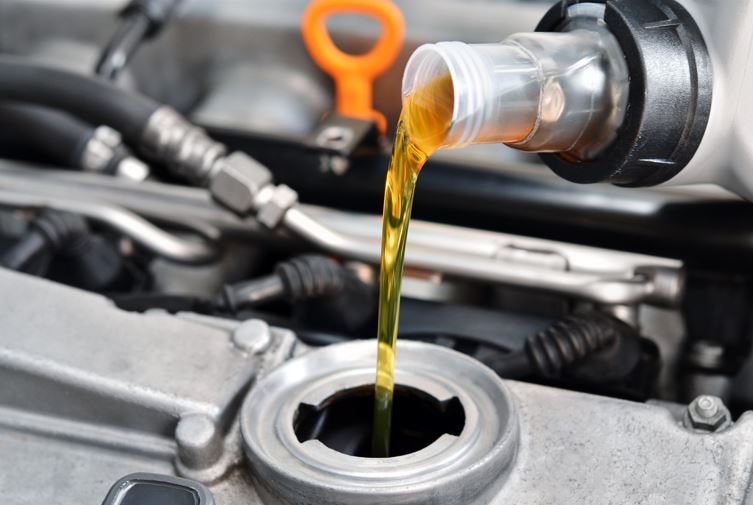Using the Wrong Oil…Does it really matter?

Aren’t all oils basically the same and does it really matter which you use? After all, the oil companies and equipment manufacturers just want to sell you a more expensive product, don’t they?? Nigel Bottom our Managing Director and Board Member of the United Kingdom’s Lubricant Association, tells us more…
Well, the short answer is NO they are not and YES it does but let me explain why.
As well as baseline ACEA or API specifications the OEM’s (Original Equipment Manufacturer) also produce their own more targeted specifications for oil.
This specification will be tailored to their particular requirements and will generally use an industry standard as a baseline but include increased severity for certain tests important to that OEM.
So often in handbooks you will see recommended an industry specification listed together with the OEM’s own.
It has never been more important to follow the manufacturers specification requirements. Modern equipment is built on extremely tight tolerances, often use exotic materials, and have extremely sophisticated electronic systems, the lubricant is a fundamental and arguably single most important part of this engineering symphony. It is the only component that comes into contact with all moving parts providing a protective film, it must absorb and neutralise acidic compounds caused by fuel combustion. It must be capable, in the case with hybrid vehicles, to cope with long periods of inactivity and still provide immediate protection when required. It must transfer heat, trap contaminants, and hold these in suspension until the next scheduled service amongst many other tasks.
Take a moment to consider exactly what the lubricant is achieving; for example, the average car oil pump will pump approximately 9 litres per minute. The average European engine car engine oil capacity is 4-6 litres, so the entire sump capacity is passing through the engine in less than a minute, every minute for 20,000 miles or in some instances 2-years. Scale this up to commercial vehicles and plant and it’s actually astounding that a fluid is capable of providing this kind of protective performance over this length of time, and it’s only possible because of the exhaustive test work performed by the OEM and additive companies. This will involve extensive laboratory work and field trials costing in many cases millions of dollars and taking years to finalise.
The same is true of all fluids, hydraulic, transmission and final drives all require, to varying degrees documented and verified validation of performance.
Using the correct viscosity is also crucial to the overall performance of the equipment, viscosity is unarguably the single most important physical property of a lubricant. Think of it like blood in the human body, if it is too thin, we risk compromised blood pressure, too thick and it will not circulate to the vital organs efficiently enough compromising or even ceasing their function. The same is true of the lubricant, viscosity is absolutely paramount to the trouble-free operation of the equipment.

Using the incorrect OEM (Original Equipment Manufacturer) specification lubricant in a vehicle can lead to many potential issues:
Increased Wear and Tear: The incorrect lubricant may not provide the necessary protection for the components, leading to increased friction and wear.
Reduced Performance: The vehicle’s performance may be negatively affected, including reduced fuel efficiency and power output.
Damage to Vehicle Components: Certain components of the vehicle may be damaged if the incorrect lubricant is used. For example, the wrong oil could cause damage to seals, leading to oil leaks or reduce or even render inoperative after-treatment devices such as catalytic converters if the incorrect chemistry is used.
Voided Warranty: If the vehicle is still under warranty, using the incorrect lubricant could potentially void the warranty.

It’s important to note that an oil that fully meets the OEM specification will not invalidate your warranty. The European Commission operate under the Block Exemption Regulation, which means owners and operators can have their equipment serviced or repaired in any chosen workshop without invalidating their manufacturer’s warranty, as long as the work, parts, and oil are of appropriate and matching standard to that of the manufacturer.
Therefore, it is very important that you use a trusted lubricant partner, one who is expertly qualified to understand the specifications and can demonstrate their products fully meet the OEM requirements. In the unlikely event of a warranty claim your lubricant partner should be able to produce documented third-party proof of compliance with the OEM specification in question to ensure validity of the claim.
Unsure about what you need? Use our online lubricant finder to make sure you’re getting the right oil.
Visit our website and use our online lubricant finder to help you find the right oil and all the associated lubricants for your car, van, tractor, digger, fork lift or whole fleet of commercial vehicles easily and quickly. All our Witham lubricants are made to the latest OEM requirements and meet the latest ACEA and API recommendations and specifications, so you can be sure the quality of product you put in your vehicle is reliable and trustworthy.



Leave a Reply